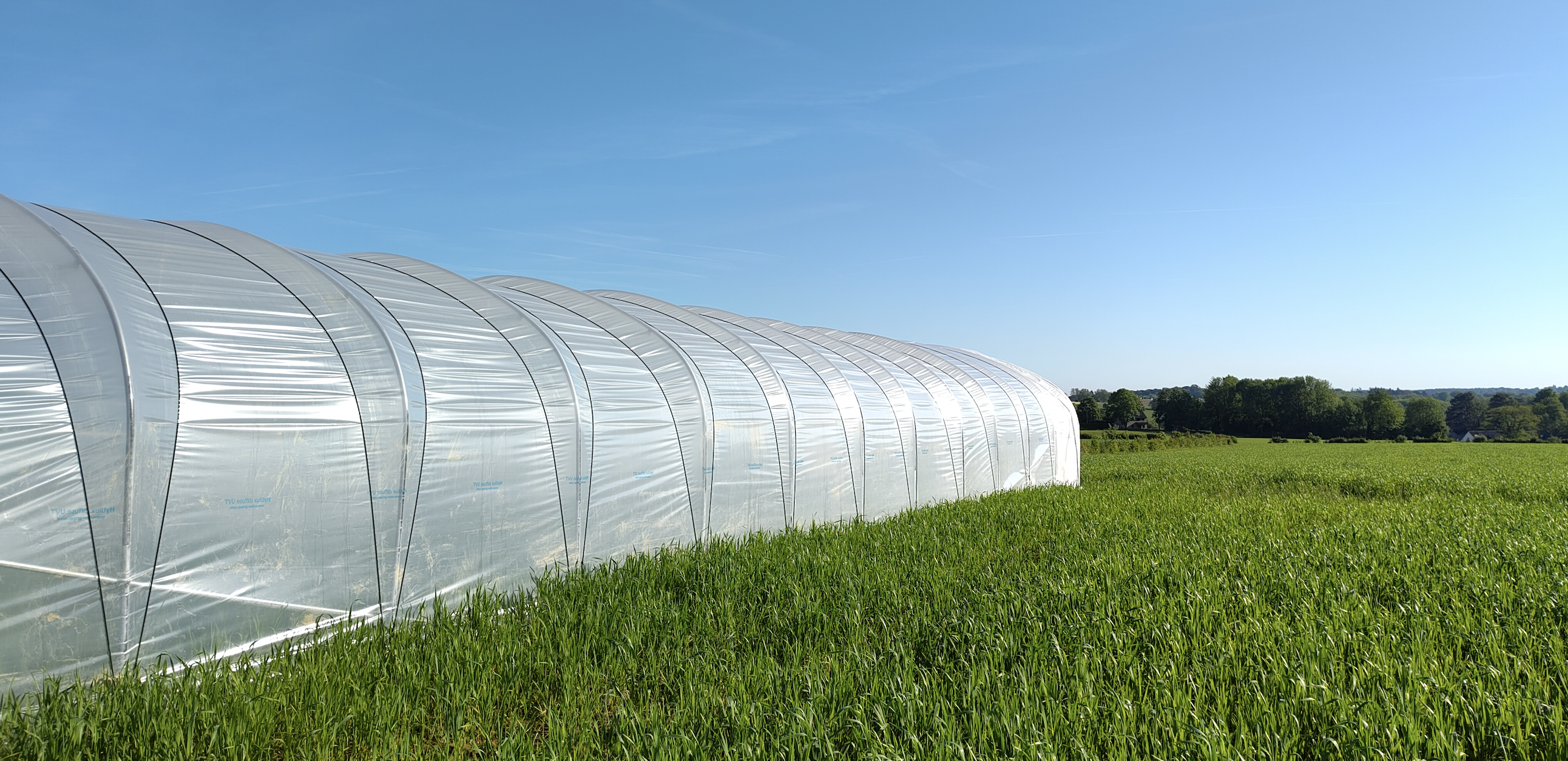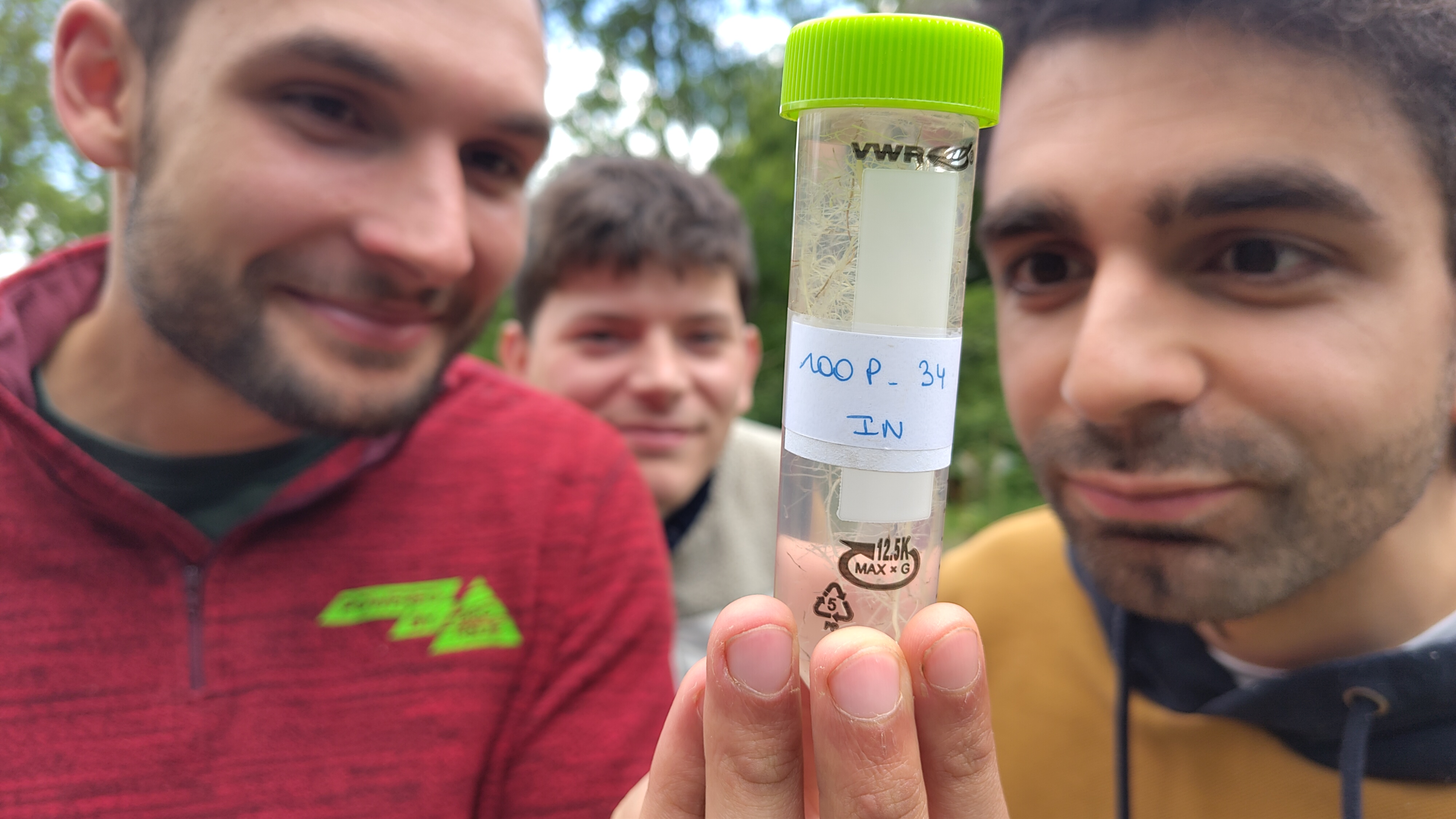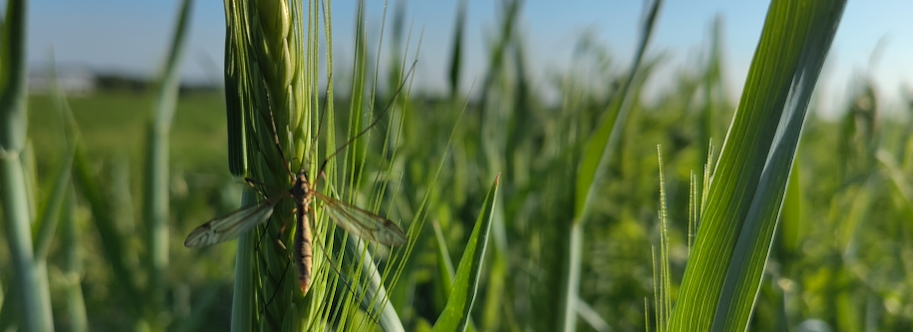DROOGHT, Improving cereal yield predictions under drought. Root diameter as a predictor of plant water uptake across scales
As droughts are becoming more frequent and severe, there is a call for adaptation strategies that enhance the crop’s resilience to these climate conditions. One pathway to do so is to select crops whose root system optimize the soil water uptake. However, the identification of adequate ideotypes is compromised by the limited understanding of the structural drivers controlling the water uptake from the root to crop scales. This knowledge gap is attributable to the multiscale and nonlinear nature of the soil-plant interactions. DROOGHT aims to address these gaps by identifying the dominant drivers of the complex below-ground processes in cereal crops.
DROOGHT is financed by the European Research Concil under the Consolidator Grant scheme.

The Plant Water Pump
We all know that water flows downhill, or down a gradient of ‘potentials’. These reflect the fact that water is drawn by gravity, suction and salts located behind membranes. The laws of physics tell us that it is impossible for water to flow along uphill gradients without consuming external energy. So, each time this phenomenon was observed in plants, scientists searched for active water pumping mechanisms, and hit a snag. Then, a novel micro-hydrological simulator showed that, in theory, neighbouring cells containing different salt concentrations could play the role of water pump. The ERC-funded ThePlantWaterPump project aims to validate this new theory, changing how we think of water transport in plants, and our understanding of droughts impact under changing climates.
The Plant Water Pump is financed by the European Research Concil under the Starting Grant scheme.

PHENET, Tools and methods for extended plant PHENotyping and EnviroTyping services of European Research Infrastructures
Agroecosystems in Europe need an agroecological transition to ensure sustainable food production, resilience to climate change, biodiversity, and soil restoration. The EU-funded PHENET project will bring together the European Research Infrastructures on plant phenotyping (EMPHASIS), ecosystems experimentation (AnaEE), long-term observation (eLTER), and data management and bioinformatics (ELIXIR) to co-develop new tools and methods for the identification of future-proofed combinations of species, genotypes, and management practices. The project will deliver services enabling access to enlarged sources of in situ phenotypic and environmental data thanks to new AI-based multi-trait and multi sensor devices, unleashed access to high-resolution Earth observation data, FAIR data support, and a new generation of predictive modelling AI and digital twins solutions.
PHENET is financed by the European Research Concil under the Horizon Grant scheme.

MineLandDiv, Mining Allelic Diversity in maize Landraces for Tolerance to Abiotic and Biotic stresses
MineLandDiv aims at (i) identifying maize landraces and favorable alleles for tolerance to abiotic (heat/drought, cold, nitrogen) and biotic stresses (Corn borer) that could be used to broaden genetic diversity of modern breeding germplasms and (ii) better understanding their resilience to variable environmental conditions. MineLandDiv is financed by the European Research Concil and the FRNS under the SusCrop ERA NET cofunding scheme.

CerealBio, Exploiting cereal biodiversity in nutrient use and biological interactions in crop resilience breeding
The CerealBio ambition is to enhance wheats and oats resilience to environmental stresses within the context of agrochemical limitations and climate challenges, ultimately contributing to climate change mitigation. For this goal, CerealBio will set a new plant ideotype that integrates standard traits for yield performance with valuable novel traits, recovered from Genetic Resources, that govern interactions with the environment and the field ecosystem, to exploit benefits arising from synergies among its biological components. In the long term, CerealBio will contribute to increasing and strengthening the sustainability of cereal farming. CerealBio is financed by the European Research Concil and the FRNS under the Green ERA Hub co funding scheme.
